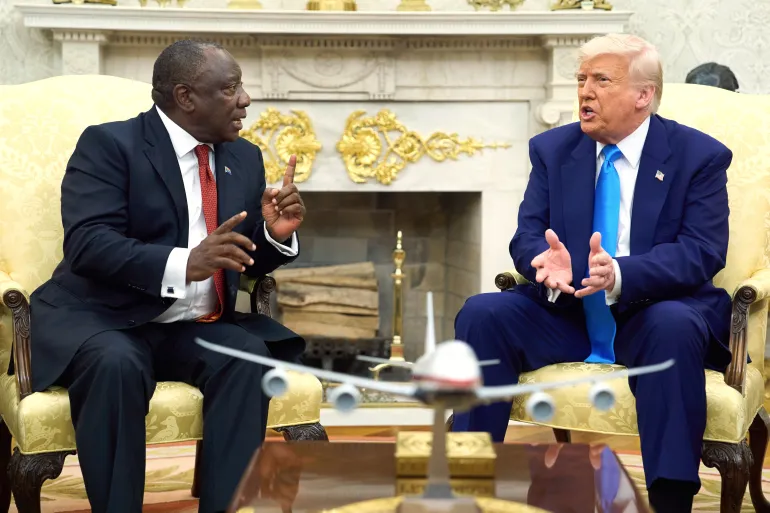South Africa’s President Cyril Ramaphosa has dismissed Donald Trump’s decision to boycott the upcoming G20 summit in Johannesburg as “their loss,” underscoring a widening rift between Washington and Pretoria. The boycott stems from Trump’s false claims of a “white genocide” in South Africa and its pursuit of Israeli accountability at the International Court of Justice.
Although it showcases Trump’s populist views and political posturing within a domestic context, it also shows the shift in global diplomacy reflected in US disengagement accelerating multipolarity. The US’s decision to skip the first G20 summit to be held in Africa risks the US ceding influence in Africa to emerging powers, like China, India, and Russia, who are committed to expanding their presence in Africa.
Ramaphosa’s defiant response captures Africa’s growing confidence in shaping global narratives without Western validation. As the G20 proceeds, Washington’s absence will likely be symbolic of a new era, where nations once seen as “peripheral” begin to take the lead in setting global agendas. The future may judge this boycott not as a statement of strength, but as a missed opportunity for American diplomacy in the Global South.

